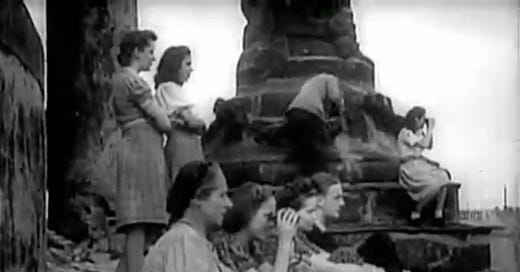It’s 1943, and Hamburg has just been firebombed by Allied forces during World War II. Roaming the aftermath, writer Hans Erich Nossack wonders, “Was all this just scenery for a fantastic opera?” Two years later and about 200 miles further east, Europe marked VE day with the unconditional surrender of Germany to Allied forces on May 8, 1945. The Soviet Army had reached Berlin the month before, and by the time of the ceasefire, the landscape was its own, perhaps even more extreme version of Nossack’s Hamburg.
The opera metaphor was apt, both for Germany’s present and its future. As the inheritors of a musical legacy that spanned from Glinka to Stravinsky, Stalin’s Army understood what could be gained from culture in a crisis: Music signaled normalcy. It was as much a stabilizing factor for the German people as it was for the Russians, who, as harpsichordist-turned-politician Hans Pischner said, “knew exactly how important it was to reestablish the cultural life” of the city they had jus…
Keep reading with a 7-day free trial
Subscribe to Critical Drift to keep reading this post and get 7 days of free access to the full post archives.



